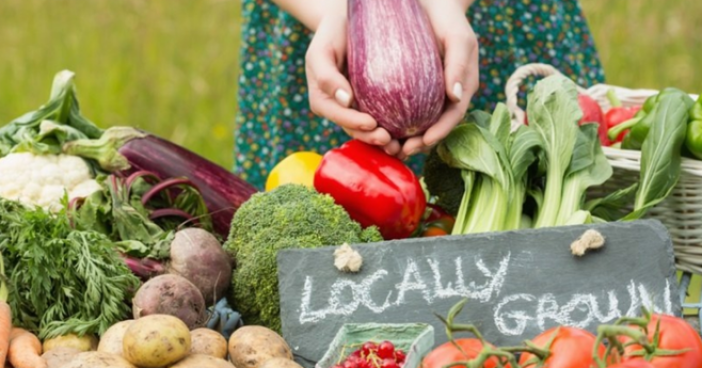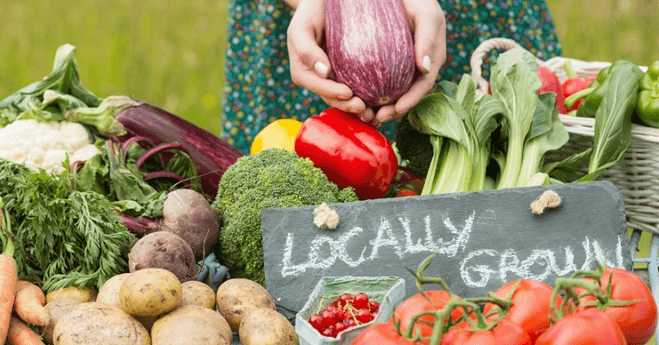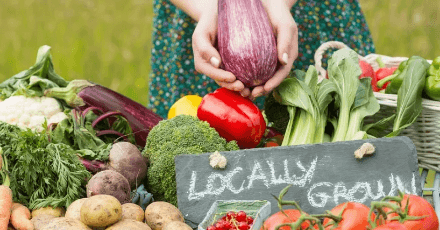There are several reasons why choosing to purchase local and sustainable food may be a better choice for you and your family.
As more farmers face agricultural challenges (e.g., limited water availability, etc.) it is becoming more difficult to find organic and healthy food that is grown, harvested and sold with sustainability in mind. However, the benefits of choosing locally grown produce and sustainable foods definitely outweigh the challenges of finding it.
The benefits of eating locally sourced and sustainable foods include:
Taste
Farmers who sell directly to consumers do not need to focus on packing, shipping and issues regarding shelf life. Instead, they can focus on the quality of their produce and prioritize freshness, nutrition and taste, with minimal use of chemicals and pesticides.
Biodiversity
Small, local farms grow a variety of fruits and vegetables (also known as polyculture), while larger corporate farms grow less variety and usually focus on only one crop (also known as monoculture). Having variety in your crops is an important sustainability practice, as it protects against diseases, creates balance and protects the biodiversity of the land and soil. Additionally, it preserves a large agricultural gene pool, which is important for the long-term life of crops.
Transportation
Our food may travel thousands of miles before it ends up on our tables. That can mean high delivery costs and increased GHG emissions due to transportation from where food is grown and harvested, packaged, and sold. There is also a large amount of energy used to store the food along the route, in the store and in your home. Buying locally-grown drastically shortens the amount of travel food needs to
take before it ends up on your plate.
Farmers
Buying local sustainable food supports people in your own community! Farmers often only receive a portion of the money made on their crops. Their profits go to a variety of external sources such as transportation, processing, packaging, refrigeration and marketing. Farmers who sell directly to local consumers receive a fuller monetary value for their produce.
Tips for finding and eating sustainable produce:
1) Learn what is in season.
When shopping, look for sustainable foods that are in season in your area.
2) Shop at farmers markets.
Shopping at farmers markets is a fun and easy way to find out where your sustainable food is coming from and possibly meet the farmers from your area.
3) Join a Community Supported Agriculture (CSA).
A CSA delivery can be a weekly or monthly delivery of fresh, organic, locally-grown and sustainable food from a nearby farm. You buy a share of the farm or pay for boxes individually, and are compensated with a delivery of sustainable fresh produce.
4) Research your favorite restaurants.
Find out which restaurants near you purchase from local vendors and serve fresh, and organic food.
5) Grow your own food.
Anyone can start a garden and begin growing delicious and sustainable food right at home.
FirstCarbon Solutions (FCS), an ADEC Organization, offers a full complement of efficient, practical and cost-effective services to assess and manage the environmental impact of new and modified projects. FCS has over 37 years of experience across more than 8,000 projects subject to CEQA requirements. To read more from our blog, check out our latest posts.




